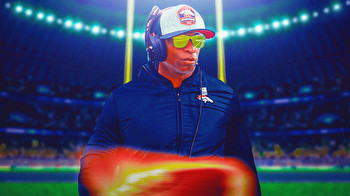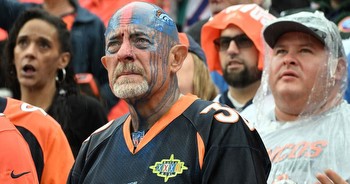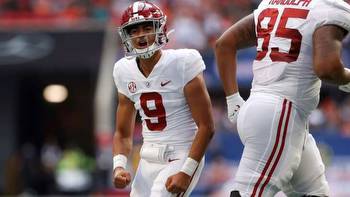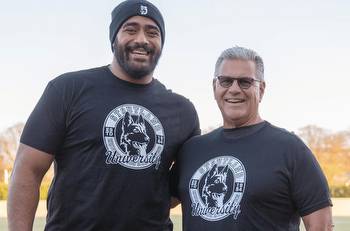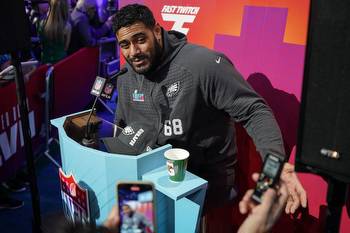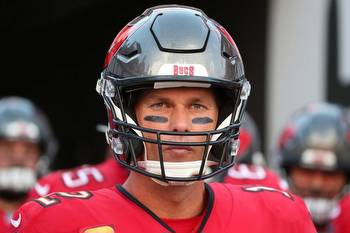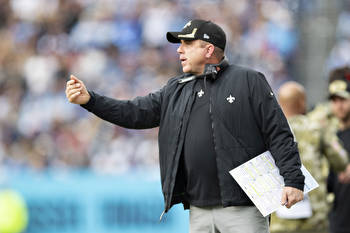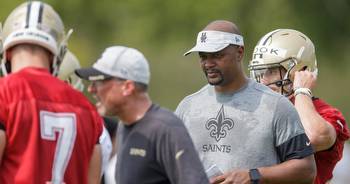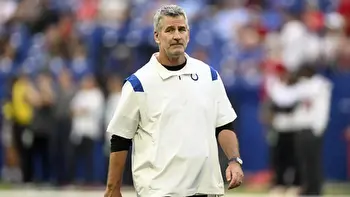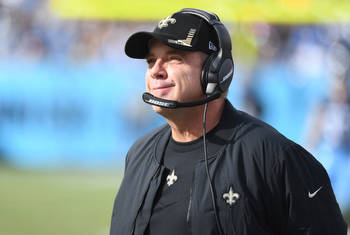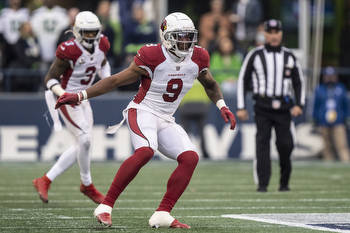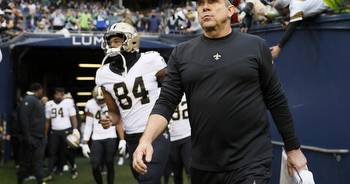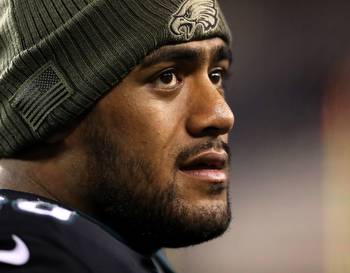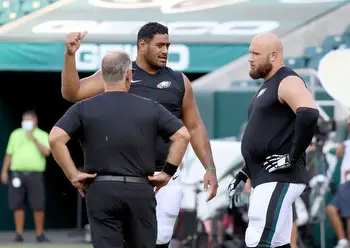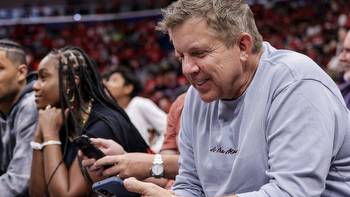Broncos could benefit from Sean Payton's late-round draft magic
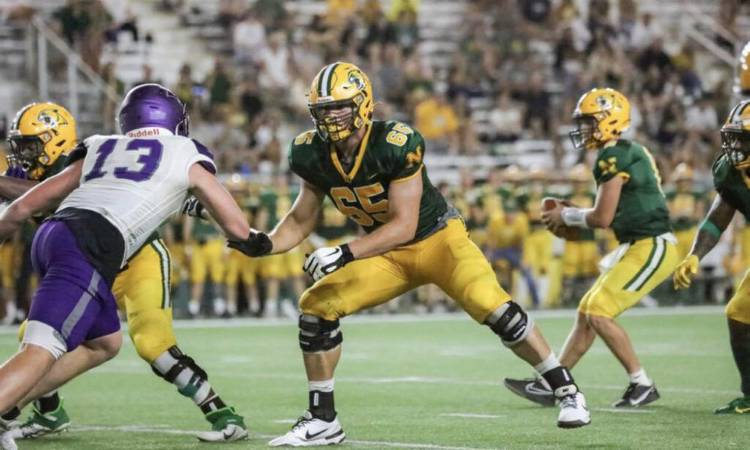
By the end of April, hundreds of NFL draft picks and undrafted free agent signees will be packing their bags and gearing up for rookie minicamps.
Jake Witt might well be the only one training for that moment in Michigan’s Upper Peninsula.
The Northern Michigan University offensive lineman is a walking representation of the idea that, if you can play, the NFL will find you. Heck, he’s only just started playing and the league still caught wind of the athletic, 6-foot-7 tackle prospect on the Lake Superior shoreline.
Witt chose to play basketball at Michigan Tech out of high school, transferred to NMU after a year to pursue academics, walked onto the football team in the spring of 2020 and then spent the COVID-19 shutdown training for the new sport before beginning his college football career as a tight end in 2021.
That alone was a big change for a kid who played 8-man football in high school and starred as a wide receiver.
“I had never blocked anybody,” he told The Post recently.
Now he’s squarely on the NFL’s radar as a potential Day 3 draft pick.
“When I switched to tackle in those three games, teams were scouting opposing players and they saw me, who was athletic out there but such a raw player that didn’t know what he was doing,” Witt said. “But they saw the athleticism and reached out to my coach, introduced themselves and started to gather a little information.
“That started to make the idea (of playing in the NFL) in my head a little bigger and a little more real.”
Witt got a lot bigger, and the idea became very real when he went to Central Michigan’s pro day earlier this spring and ran a sub-4.9-second 40-yard dash and posted a 37-inch vertical at 302 pounds.
All of a sudden, he was a popular guy among scouts and front offices. Going into that workout, he was regularly in touch with three to five teams.
“Two days after the Pro Day I’d talked to 25 teams,” he said. “Then a week after that I’d talked to 30 out of the 32 and had some 30 visits scheduled already. It really blew up.”
Now he’s done six “30 visits” — each team can bring up to 30 prospects to their facility before the draft — two private workouts and talked with every team but one. He did visit the Broncos, a source confirmed.
Every team in the NFL wants to find standout players late in the draft. There’s a reason it’s uncommon, of course. Secrets don’t stay quiet long.
The Broncos have to mine the middle and late rounds for talent since they don’t have a pick currently in the first or second rounds. They also need more talent and depth on the offensive line and happen to have a coach in Sean Payton who jumpstarted his first year in New Orleans by logging a string of 2006 draft hits. Among them were a pair of offensive linemen in fourth-rounder Jahri Evans and seventh-rounder Zach Strief, now Denver’s offensive line coach.
Might Payton and general manager George Paton see Witt as the next late-round flier worth taking a shot on? No one knows but it’s worth considering the process of how Payton ended up with Evans, Strief and seventh-round wide receiver Marques Colston way back when and what goes into a late-round pick flourishing.
A standout class
Evans, a fourth-round selection, played Division II ball like Witt at Bloomsburg University. New Orleans had a scout on staff at the time whose father was the offensive coordinator there.
“You had no problem saying that this guy could be a good run blocker at (the NFL) level,” Doug Marrone, then New Orleans’ offensive coordinator and now the team’s offensive line coach, told nola.com last year. “What you didn’t know, because of a lack of evidence, was, ‘Does he have the ability to pass protect at this level?’ Which is always probably the biggest question mark from college to pro.”
Turns out, he had that ability straight away after getting picked 108th overall – a pick the Broncos happen to hold this year. Evans played 11 years with the Saints, was a first-team All-Pro four times, helped anchor the franchise’s 2009 Super Bowl team and made the NFL’s all-decade team for the 2010s.
The Saints hit again in the seventh round that year with Strief. Payton credited late Northwestern coach Randy Walker — a mentor he worked with at Miami (Ohio) in the 1990s — with putting him on the unheralded tackle.
“I called Randy on a quarterback that he had,” Payton said. “Now you have to know Randy Walker. He didn’t pass out many compliments. They were hard-earned. We finished with the quarterback and he said, ‘What do you think of my right tackle?’ I didn’t know who his right tackle was. I said, ‘Who’s your right tackle?’ He yelled at me like I should have known, and I probably should have. Zach Strief. He goes, ‘This kid can play in your league. If (former Northwestern lineman) Trai Essex can play in your league, Strief can play in your league. He’s a two-time captain.’
“When I hung up the phone … I walked into the draft room, and I saw he was on the back board of free agents. I grabbed his magnet, walked it over, and I put it in the sixth round.”
New Orleans drafted Strief in the seventh and he went on to play 158 games (94 starts) over 12 years.
Relative rarity
On the Saints’ Super Bowl team, Evans was a first-team All-Pro, Strief served a rotational role and took over starting full-time in 2011, and Colston led the team in catches (70), receiving yards (1,074) and receiving touchdowns (nine).
Not too shabby for what in today’s draft format would be a single Saturday of third-day picks.
That kind of production is also atypical.
Take Payton’s long run in New Orleans as an example. He and general manager Mickey Loomis had 24 draft picks in that time that have played in 100 NFL games. Colston and Strief are the only two drafted in the seventh round. Eight were first-rounders, six more were in the next two rounds.
Of 50 Payton/Loomis picks that have appeared in 50 or more NFL games over the same time period, nearly half (23) were taken with a selection before No. 67 overall, which is where Denver’s first pick lands this month.
For every Alvin Kamara (67th overall in 2017) there are scores who don’t make a sizable impact in the NFL.
For every Strief, there are many more who get cut during training camp.
Witt acknowledges those odds when talking about his own story, though he’s clearly done his homework. He pointed to Eagles left tackle Jordan Mailata, a seventh-rounder in 2018 who had never played football, only rugby in Australia. Mailata developed for two years before appearing in a game and now anchors the left side for one of the best offenses in football.
“I think it’s just the fact that I’m able to get myself in this position right now, while only having played the position for a year, that’s kind of intriguing to teams because they think of me as not having that many bad habits,” Witt said. “I have a big frame, athletic, so they can kind of mold me. But also, I’m obviously not going to shy away from the negatives about it. Playing at a Division I school for four years, you’d be much more accustomed to a similar competition level to the NFL. Nothing close to it, but more than one year at Division II.
“Obviously, there’s some knocks to it, but also some positives and each team kind of takes it as an intriguing thing that comes with negatives and positives.”
Finding a role
Can a team or coach increase the odds of hitting late in the draft? Luke McCown certainly thinks so.
He spent four years in New Orleans as a backup quarterback and said Payton doesn’t believe in roster-fillers.
“Sean made you feel like, ‘Hey, we brought you here for a reason. I have a specific idea. You’re not just here to be a body,’” McCown said. “… Those guys believe that and that’s why you see the Pierre Thomases and the Marques Colstons of the world thrive for so long and become not just role players, but key players on your team. To me, that speaks more about leadership than, ‘How can I get No. 1, No. 2, No. 5 on my roster to maximize his potential?’
“Leadership is, can I turn sixth-, seventh-round, free-agent picks into not just special teams and role players, but pivotal, key parts of what we do on the team? Sean’s extremely good at that.”
Strief saw that process play out both as a player and then as an assistant coach and now is headlong into it again in Denver.
“When we prepared for the draft, Sean asked the same questions about every single player we evaluated: ‘Is he tough? Is he smart? Does he love football? And is he a great teammate?’” Strief told nola.com last year.
The Broncos are setting out on a roster rebuild that ultimately will aim to be similar to the one Payton helped engineer in New Orleans. During his introductory news conference, he said, “There’s a means to how everyone arrived here from a playing perspective. We have draft picks, we have free agents, we have undrafted free agents. That’s the method to procure the talent. Once they’re here, none of that matters.
“Once they’re here, we’re going to go by what we see and who gives us the best chance to win.”
Witt is one of many players hoping a team sees him as someone who can help it win. His story is simultaneously unlikely and familiar, a roll of the dice teams take late in the draft every year. Whether it’s with the Broncos or someone else, he’s planning to beat the odds.
“It would be awesome to have a team’s trust where they want to pick me with one of their limited draft selections,” he said. “It would be an awesome moment and I’m going to make the most of it. Wherever I end up, I’m going to go there and do my best every day because if they put their trust in me, I don’t want to disappoint them in that selection.”


